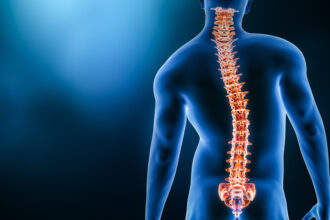Researchers from the Ludeman Family Center for Women’s Health Research have recently published a significant paper in the Journal for Women’s Health Research, highlighting critical issues in the diagnosis and treatment of coronary heart disease (CHD) in women. Led by Stacy Trent, MD, MPH, the team underscores the distinct manifestation of CHD in women compared to men, resulting in different symptoms and treatment responses.
According to Trent, CHD is frequently underdiagnosed and undertreated in women, contributing to higher mortality rates compared to men. She emphasises that many hospitals and emergency rooms still adhere to standards of care based on symptoms more commonly observed in men, which increases the likelihood of misdiagnosis and delays in appropriate treatment.
To address these challenges, the American Heart Association/American College of Cardiology has introduced a new section in their Guideline for the Evaluation of Chest Pain, explicitly focusing on women’s unique aspects of chest pain. Trent’s paper identifies key elements from this section that could significantly enhance the timely and effective diagnosis and treatment of heart disease in women.
The research recommends several measures based on these guidelines. Firstly, doctors are encouraged to consider both the commonalities and differences in symptoms between sexes, noting that women often present with symptoms such as chest pain, shortness of breath, or nausea. Secondly, the use of high-sensitivity troponins with sex-specific cutoffs is advocated for diagnosing heart attacks, which has been shown to reduce false negatives in females and false positives in males. Additionally, the paper stresses the importance of employing evidence-based clinical decision pathways to stratify patient risks, suggesting that sex-specific high-sensitivity troponin cutoffs could enhance accuracy in risk assessment for women.
The publication coincides with President Biden’s Executive Order to advance women’s health research, particularly in areas like cardiovascular disease. Amy Huebschmann, MD, MSc, senior author and lead scientist at the Ludeman Center, underscores the need for immediate action to bridge the existing care gap for women. She asserts that illuminating effective ways for clinicians to address sex-specific symptoms and treatments is crucial in this endeavour.
In concluding remarks, the authors urge healthcare leaders to drive organisational changes to ensure CHD is recognised and managed appropriately across all patient demographics. Their call to action emphasises the imperative of swiftly implementing these research findings into clinical practice to improve outcomes for women affected by heart disease.
More information: Stacy A. Trent et al, Toward Personalized and Equitable Chest Pain Pathways: Considerations Related to Sex and Gender Differences, Journal of Women’s Health. DOI: 10.1089/jwh.2024.0242
Journal information: Journal of Women’s Health Provided by University of Colorado Anschutz Medical Campus








